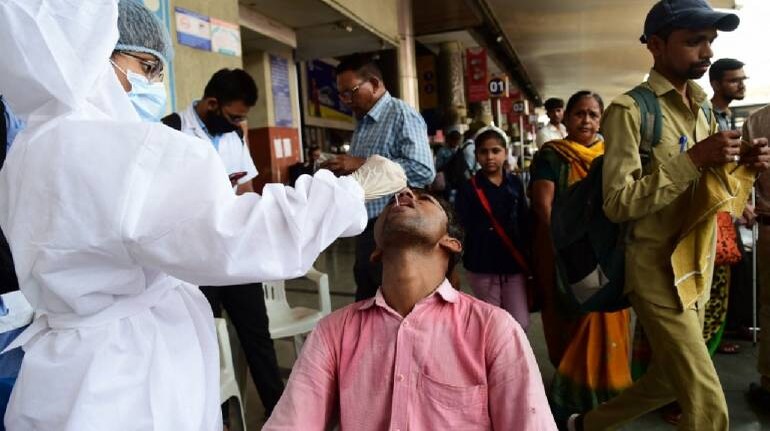



From 932 cases on March 30 to 4,976 on April 17, active coronavirus cases in Delhi have registered a jump of more than 430 percent in nearly three weeks, according to official data.
Delhi has reported more than 13,200 cases of COVID-19 in the past 19 days.
The active case tally on Monday stood at 4,976, a jump of nearly 433 percent since March 30 when the corresponding figure was 932, data showed.
The active case count was, in fact, higher on Sunday at 5,297.
Though Delhi has seen a spike in coronavirus cases in the recent past, hospitalisation remains low.
Experts have maintained that there is no need to panic and people should follow Covid-appropriate behaviour and get booster shots of vaccines.
LNJP Hospital's Medical Director Suresh Kumar had cautioned on April 13 that coronavirus cases in the national capital will peak in the next couple of weeks.
In the March 30-April 17 period, more than 30 fatalities have been recorded, including five deaths on April 15.
Delhi on Monday logged 1,017 COVID-19 cases, while the positivity rate jumped to 32.25 per cent, the highest in 15 months, according to data shared by the health department.
The capital had recorded a positivity rate of 30.6 per cent on January 14 last year.
Delhi's COVID-19 tally climbed to 20,24,244 on Monday. Four new fatalities pushed the death toll to 26,567, the health department's bulletin stated.
Delhi's daily Covid case count breached the 1,000-mark again on April 12, first time in over seven months.
Since then, the figures have been reported in four-digit only.
The spurt in the number of fresh Covid infections came amid a sharp rise in H3N2 influenza cases in the country.
The Delhi government is keeping an eye on the spurt in Covid cases in the national capital and is "prepared to face any eventuality", Chief Minister Arvind Kejriwal said recently.
Mock drills were conducted at various hospitals in Delhi on April 11 to check COVID-19 preparedness, following guidelines from the Centre.
Medical experts say the new XBB.1.16 variant of the virus could be driving the surge.
They also said this rise in the number of cases could be the result of more people getting themselves tested for Covid as a precaution when they actually get infected with the influenza virus and develop fever and related symptoms.
The Indian Council of Medical Research has said the rise in the number of influenza cases is due to the Influenza A sub-type H3N2.
The H3N2 virus is leading to more hospitalisation than the other subtypes. The symptoms include a runny nose, persistent cough and fever.
Discover the latest Business News, Sensex, and Nifty updates. Obtain Personal Finance insights, tax queries, and expert opinions on Moneycontrol or download the Moneycontrol App to stay updated!
Find the best of Al News in one place, specially curated for you every weekend.
Stay on top of the latest tech trends and biggest startup news.